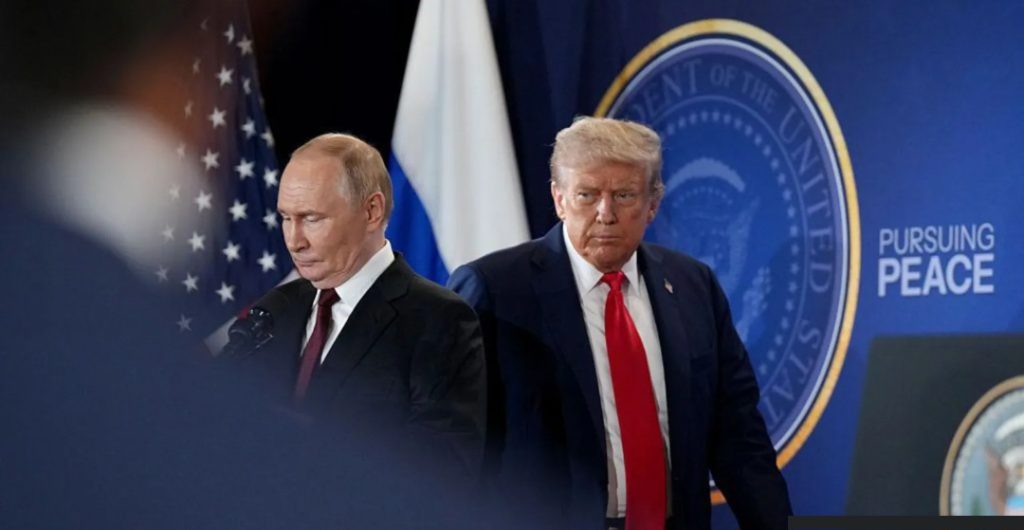
Crystal Dike
The United States on Wednesday, October 22, announced new sanctions targeting Russia’s two largest oil companies in a fresh bid to pressure Moscow into negotiating a peace deal in Ukraine.
The move came a day after U.S. President Donald Trump said a planned meeting with Russian President Vladimir Putin in Budapest had been shelved indefinitely.
“Every time I speak to Vladimir, I have good conversations, and then they don’t go anywhere,” Trump said on Tuesday.
While analysts say the sanctions’ economic impact on Russia is likely to be limited, they mark a significant shift in Trump’s foreign policy. His administration had previously refrained from imposing such measures, insisting that European nations first stop purchasing Russian oil.
Trump, who had long touted himself as a potential peace broker in the three-and-a-half-year war, said he decided to act after growing frustrated with Moscow’s inaction.
“I just felt it was time. We waited a long time,” he said Wednesday, calling the sanctions package “tremendous.” He added that the restrictions could be lifted swiftly if Russia agreed to halt the war.
U.S. Treasury Secretary Scott Bessent said the measures were necessary due to “Putin’s refusal to end this senseless war.” He said the targeted oil firms—Rosneft and Lukoil—funded the Kremlin’s “war machine.”
Oil and gas are Russia’s largest exports. Rosneft and Lukoil together ship about 3.1 million barrels of oil per day, with Rosneft accounting for nearly half of Russia’s total output—roughly 6% of global production, according to U.K. estimates.
Trump also urged Russia’s main customers, including China, India, and Turkey, to stop buying its oil to increase pressure on the Kremlin.
Ukraine’s President Volodymyr Zelensky has for months urged Washington to sanction Russia’s major energy firms. He met with Trump at the White House on Friday seeking long-range Tomahawk missiles but left empty-handed. Trump later said he refused the request because the weapons were “highly complex” and required a year of intensive training to operate.
The sanctions announcement followed a call between U.S. Secretary of State Marco Rubio and Russian Foreign Minister Sergei Lavrov, after which the planned Trump-Putin meeting was put on hold. Trump said he did not want a “wasted meeting.”
Fighting on the ground continued overnight, with Russian strikes on Kyiv killing at least two people. Earlier on Wednesday, another bombardment killed seven, including children.
The United Kingdom last week imposed similar sanctions on Rosneft and Lukoil. Chancellor Rachel Reeves said there was “no place for Russian oil on global markets.” In response, Russia’s embassy in London warned that such actions could disrupt global fuel supplies and “complicate peaceful dialogue.”
Europe’s reliance on Russian energy has declined sharply since the invasion began, though Russian gas still makes up 13% of EU imports. On Wednesday, EU Commission President Ursula von der Leyen praised the U.S. sanctions and confirmed a new EU ban on Russian liquefied natural gas imports by 2028.
At the White House, NATO Secretary General Mark Rutte welcomed the sanctions, saying they would “put more pressure” on Putin. Rutte is expected to discuss a 12-point peace proposal drafted by European allies and Kyiv, which includes freezing the front lines, returning deported children, and initiating a prisoner exchange.
The proposal also outlines a war recovery fund for Ukraine, security guarantees, and a clear pathway for Kyiv’s EU membership.
However, progress remains stalled as Moscow refuses to cease fighting along the current front line. Kremlin spokesman Dmitry Peskov reiterated Russia’s demand that Ukrainian forces withdraw from parts of the Donbas region still under Kyiv’s control.
